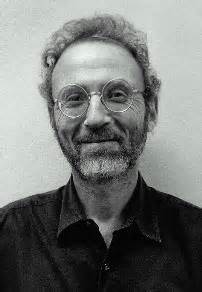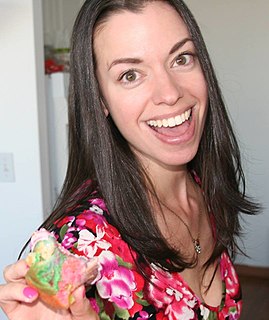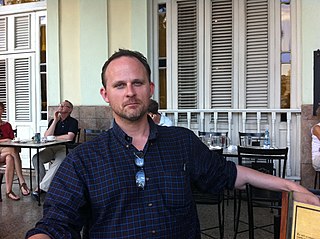A Quote by Don DeLillo
Every sentence has a truth waiting at the end of it and the writer learns how to know it when he finally gets there.
Related Quotes
Every sentence has a truth waiting at the end of it and the writer learns how to know it when he finally gets there. On one level this truth is the swing of the sentence, the beat and poise, but down deeper it's the integrity of the writer as he matches with the language. I've always seen myself in sentences. I begin to recognize myself, word by word, as I work through a sentence. The language of my books has shaped me as a man. There's a moral force in a sentence when it comes out right. It speaks the writer's will to live.
Writing is linear and sequential; Sentence B must follow Sentence A, and Sentence C must follow Sentence B, and eventually you get to Sentence Z. The hard part of writing isn't the writing; it's the thinking. You can solve most of your writing problems if you stop after every sentence and ask: What does the reader need to know next?
I'm looking for a writer who doesn't know where the sentence is leading her; a writer who starts with her obsessions and whose heart is bursting with love, a writer sly enough to give the slip to her secret police, the ones who know her so well, the ones with the power to accuse and condemn in the blink of an eye. It's all right that she doesn't know what she's thinking until she writes it, as if the words already exist somewhere and draw her to them. She may not know how she got there, but she knows when she's arrived.
The first sentence of the truth is always the hardest. Each of us had a first sentence, and most of us found the strength to say it out loud to someone who deserved to hear it. What we hoped, and what we found, was that the second sentence of the truth is always easier than the first, and the third sentence is even easier than that. Suddenly you are speaking the truth in paragraphs, in pages. The fear, the nervousness, is still there, but it is joined by a new confidence. All along, you've used the first sentence as a lock. But now you find that it's the key.
We're all sinking in the same boat here. We're all bored and desperate and waiting for something to happen. Waiting for life to get better. Waiting for things to change. Waiting for that one person to finally notice us. We're all waiting. But we also need to realize that we all have the power to make those changes for ourselves.
Every writer is necessarily a critic - that is, each sentence is a skeleton accompanied by enormous activity of rejection; and each selection is governed by general principles concerning truth, force, beauty, and so on. The critic that is in every fabulist is like the iceberg - nine-tenths of him is under water.
Children learn what they live.
If a child lives with criticism... he learns to condemn.
If he lives with hostility... he learns to fight.
If he lives with ridicule... he learns to be shy.
If he lives with shame... he learns to be guilty.
If he lives with tolerance... he learns confidence.
If he lives with praise... he learns to appreciate.
If he lives with fairness... he learns about justice
The book works better if I know everything I can about the ending. Not just what happens, but how it happens and what the language is; not just the last sentence, but enough of the sentences surrounding that last sentence to know what the tone of voice is. I imagined it as something almost musical. Then you are writing toward something; you know the sound of your voice at the end of the story. That's how you want to sound in those final sentences: the degree that it is uplifting or not, the degree that it is melancholic or not.
The writer learns to write, in the last resort, only by writing. He must get words onto paper even if he is dissatisfied with them. A young writer must cross many psychological barriers to acquire confidence in his capacity to produce good work-especially his first full-length book-and he cannot do this by staring at a piece of blank paper, searching for the perfect sentence.
There is no ideal length, but you develop a little interior gauge that tells you whether or not you're supporting the house or detracting from it. When a piece gets too long, the tension goes out of it. That word?tension?has an animal insistence for me. A piece of writing rises and falls with tension. The writer holds one end of the rope and the reader holds the other end?is the rope slack, or is it tight? Does it matter to the reader what the next sentence is going to be?
A hidden nerve is what every writer is ultimately about. It's what all writers wish to uncover when writing about themselves in this age of the personal memoir. And yet it's also the first thing every writer learns to sidestep, to disguise, as though this nerve were a deep and shameful secret that needs to be swathed in many sheaths.
I think the first thing - if you want to be a writer - the first thing you need to do is write. Which sounds like an obvious piece of advice. But so many people have this feeling they want to be a writer and they love to read but they don't actually write very much. The main part of being a writer, though, is being profoundly alone for hours on end, uninterrupted by email or friends or children or romantic partners and really sinking into the work and writing. That's how I write. That's how writing gets done.





































